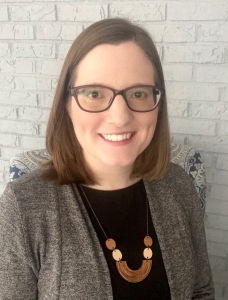Time
On this episode of the SOS Podcast, hosts Megan and Rob discuss the concept of time and how it seems to move quickly during busy periods like the holiday season. They compare their current mindset to different animals, such as squirrels and prairie dogs, to reflect their mental state. The hosts explore their thoughts on how stressors and events affect our perception of time and how it seems to speed up during this time of year. Overall, they reflect on the importance of staying grounded and focused during busy times.
Time Distortion Can Help Us
Time distortion can be a powerful tool to help us reach our goals and dreams. It is the ability to perceive time differently than it is actually moving, either faster or slower. This can be used to gain insight into our past, present, and future.
When we look to our past, we can use time distortion to gain insight into our childhood. We can ask ourselves what advice we would give our younger selves, or what our younger selves would tell us now. This can be a powerful tool for self-reflection and understanding.
We can also use time distortion to look to the future. Visualization is a powerful tool for manifesting our goals and dreams. By visualizing our future, we can create a mental image of what we want to accomplish. This can help us stay focused and motivated on our goals.
Finally, time distortion can help us in the present. We can use it to slow down and appreciate the moment. We can take a step back and observe our lives from a different perspective. This can help us gain clarity and focus on what we want to do and how we want to live our lives.
Time distortion is a powerful tool that can help us gain insight into our past, present, and future. It can help us stay focused on our goals and dreams, and can help us gain clarity and appreciation for the present moment. By using time distortion, we can make the most of our lives and reach our full potential.
Plan ahead for clarity.
One way to use time distortion is to think about what your 80-year-old self would advise you to do. This can help us take a step back from our current situation and gain a more objective perspective. It can help us see how our decisions now will affect our future, and can help us make decisions that will lead to a better future. By seeing our decisions from the perspective of our future selves, we can make decisions that will bring us closer to our goals and dreams.
Another way to use time distortion is to visualize our future and plan ahead. This can help us stay focused on our goals and dreams and can help us make decisions that are in line with our long-term goals. We can also use time distortion to see how our current decisions will affect our future, and to make decisions that will help us reach our desired destination.
Lastly, we can use time distortion to gain clarity and appreciation for the present moment. By taking a step back and looking at our lives from a different perspective, we can gain a better understanding of our current situation and can learn to appreciate the present moment. We can also gain insight into our past and our future, which can help us make better decisions in the present.
Time distortion is an invaluable tool that can help us gain clarity and appreciation for the present moment. It can help us stay focused on our goals and dreams, and can help us make decisions that will lead to a better future. By using time distortion, we can make the most of our lives and reach our full potential.
Shift perspective to gain clarity.
Time distortion is the act of shifting our perspective of time, either in the past or in the future. It can be used to gain clarity and understanding of a situation, and to make better decisions.
We can use time distortion for gaining:
- Insight into our own lives and to gain perspective on the lives of others. By shifting our perspective of time, we can gain a better understanding of the present moment and how our actions will affect our future.
- Clarity on difficult situations. For example, if we are stuck in a difficult situation, we can use time distortion to help us see it from a different angle. We can imagine ourselves in a movie theater, and watch our current situation play out on the screen. We can then step into the movie and gain control over the narrative, deciding how we want the story to unfold. By doing this, we can gain a better understanding of the situation and make better decisions.
- Perspective on our goals and dreams. We can imagine ourselves in the future, and see how our current actions will affect our future selves. We can imagine what our lives will look like in five, ten, or even twenty years. By doing this, we can gain insight into our goals and dreams, and make decisions that will help us reach them.
Overall, time distortion is an invaluable tool that can help us gain clarity and appreciation for the present moment. It can help us stay focused on our goals and dreams, and can help us make decisions that will lead to a better future. By using time distortion, we can make the most of our lives and reach our full potential.
Process grief with compassion.
When it comes to processing grief, it is important to do so with compassion. Grief is a difficult emotion to process and can be overwhelming. It is important to remember that grief is a natural process and it is important to allow ourselves to feel the emotions associated with grief.
It is important to talk to someone about our grief. Talking to a friend, family member, or therapist can help us to process our grief in a healthy way. We can also use time distortion to help us process our grief. Time distortion is a technique that can help us to reframe our experiences and gain clarity. By slowing down our perception of time, we can gain perspective and understanding.
When dealing with grief, it is important to be kind to ourselves. We need to give ourselves permission to feel the emotions associated with grief. We can also use self-care techniques such as yoga, meditation, and journaling to help us process our grief in a healthy way.
It is also important to remember that grief is a process and it is important to take it one step at a time. We can also use the support of others to help us process our grief. Talking to a friend, family member, or therapist can be helpful in dealing with grief.
Finally, it is important to remember that grief is a natural process and it is important to allow ourselves to feel the emotions associated with grief. By processing our grief with compassion, we can learn to accept and move forward with our lives.
Emotions in motion, release them.
Emotions in motion, release them. This is a phrase that is often used to describe the process of accepting and releasing emotions such as grief. It is essential to understand that emotions are not created or destroyed, but rather they are in constant motion. By allowing ourselves to experience our emotions, we can learn to cope with and process them in a healthier way.
When we experience grief, it is normal to feel overwhelmed and to want to push our emotions away. We may feel angry, sad, anxious, or guilty, and it can be difficult to process these emotions. However, it is important to remember that these emotions are natural and it is okay to feel them. By normalizing and accepting our emotions, we can begin to form a healthier relationship with them.
One way to do this is to practice mindfulness and observe our emotions without judgment. We can also practice gratitude and connection to what we have lost. This could be through spiritual rituals or by taking a moment to appreciate the life of the person we have lost. This can help us to find meaning in our grief and to move forward in a more positive way.
Finally, it is important to remember that emotions are in constant motion and it is essential to allow them to move through us. We can do this by taking time to acknowledge our emotions and to give them attention. By allowing ourselves to feel our emotions, we can begin to process and release them in a healthier way.
Grief is a difficult emotion to process, but by allowing ourselves to experience and release our emotions, we can learn to cope with our grief in a healthier way.
Ways to process emotions.
One way to process our emotions is to explore the present with curiosity. By taking the time to observe our emotions and recognize them, we can begin to understand the source of our pain and the best way to move forward. By using the train station analogy, we can think of our emotions as trains that come and go. Instead of getting stuck on one emotion, we can keep the traffic flowing by allowing ourselves to process our emotions a little bit at a time.
We can also explore the present with curiosity by noticing and naming our emotions. By being aware of our emotions, we can begin to recognize patterns in our behavior and learn to manage our emotions in a healthier way. Additionally, by naming our emotions, we can gain a better understanding of what we are feeling and why.
Finally, we can explore the present with curiosity by asking ourselves questions. If we are feeling sadness, we can ask ourselves what we need to learn or know about this sadness. We can also ask ourselves what we need to do to make our sadness lighter or start to float away. By asking ourselves these questions, we can gain insight into our emotions and learn to cope with them in a more productive way.
In conclusion, exploring the present with curiosity can help us process our emotions in a healthier way. By being mindful of our emotions, naming them, and asking ourselves questions, we can gain insight into our feelings and learn to cope with our grief in a more productive way.
Be mindfully open-minded.
Being open-minded is an important part of life. It allows us to explore new ideas, consider different perspectives, and learn more about the world around us. However, it is important to remain mindful when we are open-minded. We must be aware of our feelings and emotions and how they may be affected by our openness.
One way to maintain an open mind while being mindful is to practice non-judgmental curiosity. We can ask ourselves questions about our experiences and feelings without coming to any conclusions. This allows us to explore our thoughts and emotions without attaching any labels or judgments to them. When we are curious about our emotions, we can gain insight into our feelings and learn to cope with our grief in a more productive way.
Another way to practice mindful open-mindedness is to take time to reflect on our experiences. We can pause and take a moment to process our feelings and thoughts without judging ourselves or others. This allows us to gain a better understanding of our emotions and how they may be affecting our lives. Taking the time to reflect can help us to better understand our emotions and how we can use them to our advantage.
Finally, it is important to remember that being open-minded does not mean that we have to agree with every opinion or perspective. We can be open-minded without compromising our values or beliefs. We can listen to other people’s opinions and consider different perspectives without feeling the need to agree with them. This allows us to maintain an open mind while still staying true to ourselves.
Overall, being open-minded is an important part of life. However, it is important to remain mindful when we are open-minded. By practicing non-judgmental curiosity, taking time to reflect on our experiences, and remembering that we do not have to agree with every opinion or perspective, we can maintain an open mind while still staying true to ourselves.
Build empathy through connection.
One way to build empathy through connection is to practice non-judgmental curiosity. This means that instead of immediately forming an opinion about someone or something, we take the time to ask questions and get to know the person or situation before forming an opinion. By doing this, we are able to get to know the person or situation better and can better understand their perspective. This helps us to form a more accurate opinion and can also help us to better understand our own perspectives.
Another way to build empathy through connection is to take time to reflect on our experiences. When we take the time to reflect on our experiences, we are able to gain a better understanding of our own thoughts and feelings. This can help us to better understand the thoughts and feelings of others, as well as our own. Taking the time to reflect can also help us to gain insight into our own biases and beliefs, which can help us to better understand the perspectives of those around us.
Finally, it is important to remember that we do not have to agree with every opinion or perspective. We can still remain open-minded while staying true to ourselves. We can still listen to different perspectives and take the time to understand them without necessarily agreeing with them. This helps us to gain a better understanding of those around us and can help us to build empathy through connection.
In conclusion, building empathy through connection is an important part of life. By practicing non-judgmental curiosity, taking time to reflect on our experiences, and remembering that we do not have to agree with every opinion or perspective, we can remain open-minded while still staying true to ourselves. This can help us to gain a better understanding of those around us and can help us to build empathy through connection.
CLICK HERE TO LISTEN TO THE SHIFTING OUR SH!T PODCAST










 using haptic vibration is that it can be used anywhere—in meetings at work, in between classes at school, out and about, or at home—to increase feelings of calm and peace.
using haptic vibration is that it can be used anywhere—in meetings at work, in between classes at school, out and about, or at home—to increase feelings of calm and peace. 



